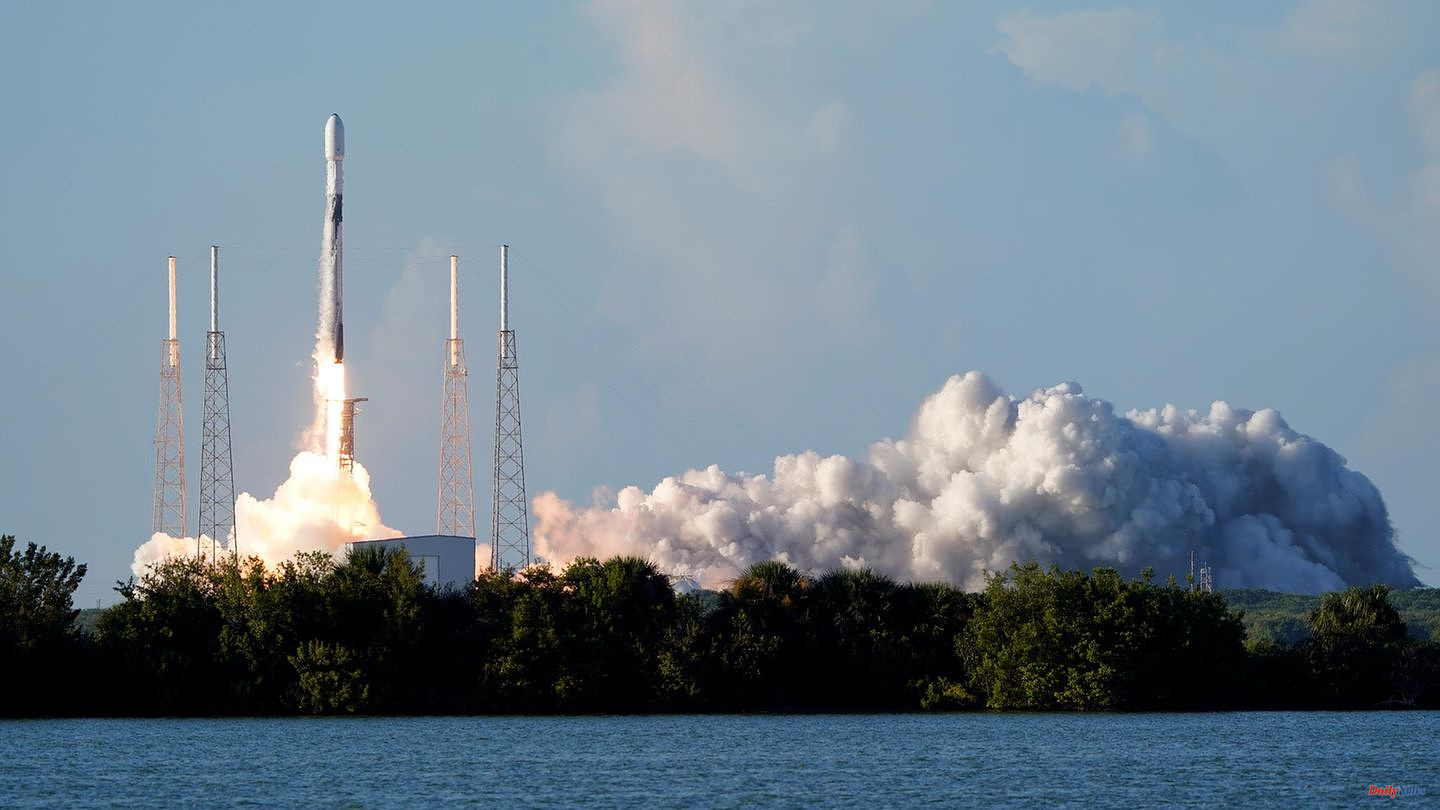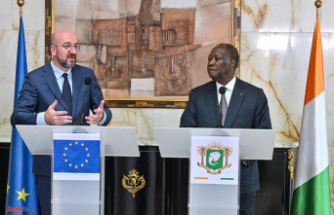As part of its plans for space exploration, South Korea has sent its own lunar probe into space for the first time: A "Falcon-9" rocket from Elon Musk's private space company SpaceX took off on Thursday evening (local time) as scheduled with the test lunar probe "Korea Pathfinder". on board from the Cape Canaveral Cosmodrome in the US state of Florida.
After a journey of four and a half months through space, the orbiter – also known as Danuri – is to orbit the moon and from there explore the moon with six instruments during its one-year mission.
Among other things, possible landing sites for future moon missions should be sought. Danuri - an artificial word formed from the South Korean words for "moon" and "enjoy" - should also enable a wireless Internet network to connect satellites or spacecraft. To test the connection, the hit "Dynamite" by the K-pop band BTS is to be streamed.
South Korea's Deputy Science Minister Oh Tae Seok announced on Friday that Danuri has already "successfully" reached Earth orbit on its way to the moon. Scientists set up a communication link to the probe via an antenna from the US space agency Nasa in Canberra, Australia. Danuri's solar panel has duly unfolded and can "start generating electricity," the minister said.
"This is a very significant milestone in the history of South Korea's space exploration," South Korea Space Research Institute President Lee Sang-ryool said in a video about the Danuri launch. "Danuri is just the beginning." It is also possible to reach Mars and asteroids in the “near future”.
The project, including the development of an unmanned space vehicle, is the result of cooperation between the Korean Space Research Institute (Kari) and other institutes in South Korea, as well as the US space agency Nasa.
One of the goals of space exploration plans is to land on the moon by 2031. It has not yet been specified whether there will be an unmanned landing with a robot.
South Korea has an ambitious space program. In June, according to its own statements, it had successfully launched satellites for civilian use into orbit with a self-built launch vehicle. The country is also a signatory to NASA's Artemis program for space cooperation. The plan is to send people to destinations like the moon and Mars with a fully reusable takeoff and landing system. In Asia, China, Japan and India already have advanced space programs.












